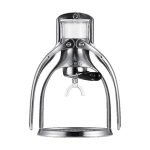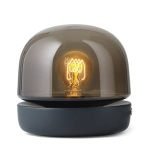Hard Drives
A hard drive is a storage device that stores digital information on a physical disk. It has been around since the 1950s and it is one of the most important components in any computer system today. Hard drives are used to store data, applications, operating systems, and other files that are essential for running computers efficiently. They come in various sizes ranging from small external hard drives to large internal ones with capacities up to several terabytes or more.
Hard drives work by spinning magnetic disks at very high speeds which allow them to read and write data quickly so users can access their stored content almost instantaneously when needed. The faster the speed of rotation (RPM), the faster your computer will be able run programs as well as transfer files between devices such as USB sticks or other external storage media like CDs/DVDs etc.. Additionally, larger capacity hard disks also provide greater performance than smaller ones due to having more space available for storing different types of information simultaneously without slowing down performance significantly over time compared with smaller models which may become overwhelmed after prolonged use if not periodically backed up elsewhere regularly enough .
In conclusion then ,hard drives remain an invaluable component within modern computing technology because they enable us all too easily store vast amounts of digital content securely while being ableto access it instantly whenever we need it – making our lives much easier than ever before!
What is the hard drive for?
A hard drive is an essential component of a computer system. It is the main storage device for all your data, including files, applications and operating systems. Without a hard drive, you would not be able to store any information on your computer or access it when needed.
The primary purpose of a hard drive is to provide permanent storage space for data that can be accessed quickly and easily by the user or other programs running on the same machine. Hard drives are typically used in desktop computers as well as laptops and tablets; they come in various sizes from small external drives up to large internal ones with terabytes (TB) worth of capacity. The most common type of hard disk today uses magnetic disks which spin around at high speeds accessing bits one after another until it finds what it needs; this process is known as random access memory (RAM).
Hard drives are also used for backup purposes since they offer more reliable protection against loss due to power outages than other types of media such as flash memory cards or USB sticks do; although these devices may fail over time due to wear-and-tear caused by continuous use, if stored properly then their contents will remain intact even after long periods without being powered up again - something that cannot always be said about RAM chips which can become corrupted very easily if left unpowered too long! Additionally, some modern solid state drives have no moving parts so there’s less risk involved compared with traditional spinning platter models making them ideal candidates when looking into ways how best protect important documents from accidental deletion/corruption etc… All things considered – having an adequate amount good quality HDD’s installed inside one's machine should go along way towards ensuring its continued operation even under difficult circumstances!
Which hard disk is best?
When it comes to choosing a hard disk, there are many factors that need to be taken into consideration. The type of hard drive you choose will depend on your needs and budget. There is no single “best” hard drive; the best one for you depends on what you plan to use it for.
Solid State Drives (SSD) are becoming increasingly popular due to their speed and reliability compared with traditional spinning disks (HDD). SSDs have no moving parts, meaning they can access data faster than HDDs which rely on physical platters rotating at high speeds in order to read or write data. However, SSDs tend be more expensive than HDDs so if cost is an issue then an HDD may be the better option as they provide good capacity at lower prices per gigabyte of storage space.
On the other hand, Hybrid Hard Drives combine both technologies by adding a small amount of flash memory onto a spinning disk in order improve performance while still keeping costs down relative compared with pure SSD drives . This makes them ideal for those who want some performance benefits without breaking the bank . Ultimately , when selecting your next Hard Drive its important that consider all these factors before making any purchase decisions .
How to choose a hard drive?
Choosing the right hard drive for your computer can be a daunting task. There are many factors to consider, such as storage capacity and speed, which makes it difficult to decide on the best option. However, with some research and careful consideration of your needs, you can make an informed decision that will serve you well in the long run.
The first factor to consider when choosing a hard drive is storage capacity. How much space do you need? If you’re storing large files like videos or photos then look for drives with larger capacities ranging from 500GB up to 10TB or more if needed. On the other hand if all that’s being stored are basic documents then smaller capacities may suffice such as 120GB-500GB depending on how much data is being stored at any given time .
In addition to storage capacity another important factor is speed; this refers mainly SATA III speeds but also applies for external drives too where USB 3 speeds should be considered instead of their slower predecessors (USB 2/1). The higher these numbers are generally means faster transfer rates between devices so take this into account especially if transferring large amounts of data frequently over short periods of time . In conclusion , ensuring adequate storage size along with appropriate read/write speeds should ensure users have enough room while still retaining good performance levels from their chosen device .




































